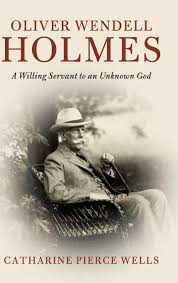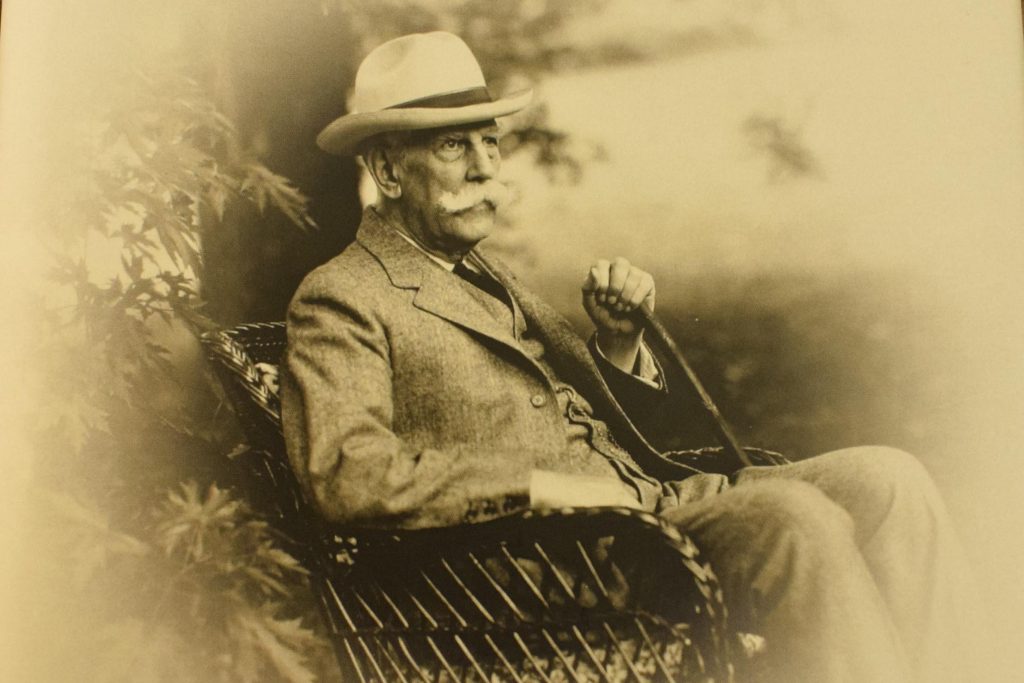Catharine Wells, a Boston College Law School professor and expert on American pragmatism, has written a new study of Supreme Court Justice Oliver Wendell Holmes. One reviewer described Oliver Wendell Holmes: A Willing Servant to an Unknown God as “elegantly written and filled with sparkling insight about the inner life of one of America’s greatest judges.” Another wrote: “Wells successfully reimagines Holmes’s life and work in the context of American philosophical pragmatism.”

Holmes was surely one of America’s greatest judges. His legal career spanned seventy years, fifty of them on the bench, first in the Massachusetts Supreme Judicial Court and then in the United States Supreme Court. During these years, he helped to reshape the common law and wrote foundational opinions about freedom of speech and the limits of state regulatory power. Though he was much praised and respected in his lifetime, more contemporary writers have not been so kind. They have charged that he was cold, distant, and lacked empathy—the result, they thought, of three years fighting for the Union in the thick of the Civil War. Holmes himself regarded military service as a sacred experience; and this, the modern critics said, made him heartless and bellicose. Furthermore, they argued, his so-called positivism made him skeptical of the high ideals that Americans had fought to defend in the Second World War.
In her book, Wells argues that Holmes’ critics have failed to understand the depth and strength of his moral convictions. To illuminate these, she set out to reconcile the contradictory tendencies in Holmes’ thought by exploring his early life and influences. She turned her philosopher’s eye to the pragmatism “that fueled his intellectual humility” and the Transcendental Idealism “that inspired him to live what [Ralph Waldo] Emerson had described as a life that was ‘secretly beautiful.’” The result, according to Wells’ publisher, Cambridge University Press, is an “innovative study” that is the first to explore the 19th century New England influences that shaped Holmes’ character and that “unlocks his unique identity and contribution to American law.”

Wells has written extensively on Holmes in a number of scholarly journals. Most recently, she contributed a chapter to The Pragmatism and Prejudice of Oliver Wendell Holmes Jr. (Rowman & Littlefield, 2019; edited by Seth Vannatta). In the chapter, she argues that it is a misleading to describe Holmes as a legal positivist. She offers a detailed analysis of his views on legal reasoning to support her conclusion that the label oversimplifies both his legal theory and his practice as a judge. (Read an interview with Wells about her book that appeared in The Anglo-American Lawyer Magazine and is shared here with permission).
In addition to her book and her most recent chapter, Wells has authored academic articles published in Harvard Law Review, the Michigan Law Review, University of Southern California Law Review, and the Northwestern Law Journal. She is a member of the American Law Institute and a former Assistant Attorney General and Director of the Division of Public Charities for the state of Massachusetts. Wells received her law degree magna cum laude from Harvard Law School, earned her MA and PhD in Philosophy from the University of California, Berkeley, and received her undergraduate degree from Wellesley College.


